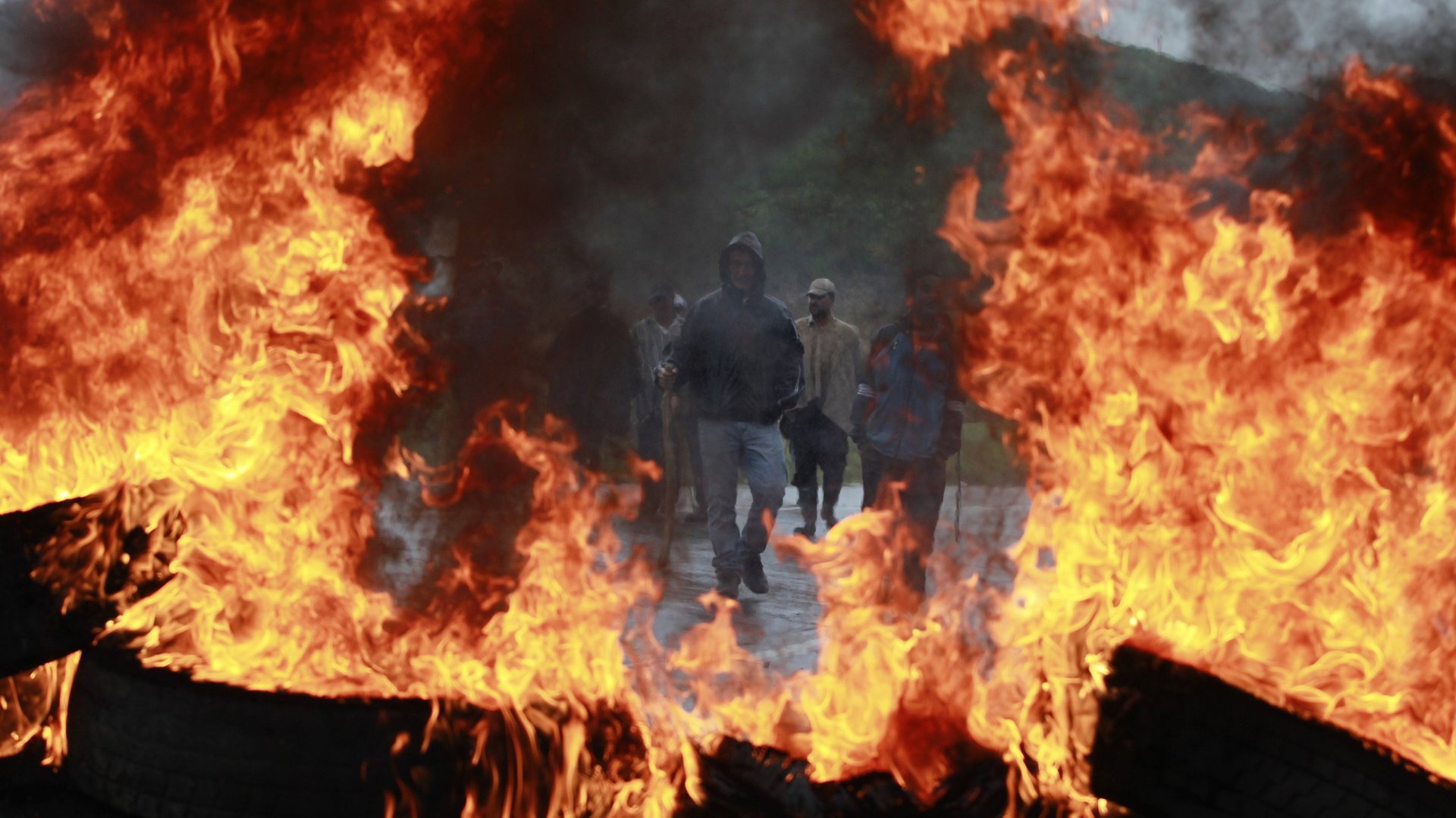Cargill used shell companies to buy its way into Colombia’s 50-year civil war
It’s hard to mistake Cargill, the gigantic, privately-held US commodities trading firm, for a small-holding family of farmers.


It’s hard to mistake Cargill, the gigantic, privately-held US commodities trading firm, for a small-holding family of farmers.
But the company’s ability to disguise itself behind more than three-dozen front companies gave it the ability to tap into Colombian land reserved for the poor, expanding its holdings there by some 53,000 hectares.
Colombian law prevents individuals or companies from obtaining more land than it would take to support a family—a maximum of 1,725 hectares. According to an investigation (pdf) by the poverty-focused NGO Oxfam, between 2010 and 2012 Cargill set up some 36 directly-controlled front companies (underneath four other Colombian subsidiaries) to purchase the land it wanted, far exceeding the legal limit. Locals told Oxfam that Cargill brings in migrant workers from outside the region to work for three weeks at a time, followed by a week of rest.
Cargill may be looking to expand its production of cash crops like soybeans and corn, but it finds itself at the center of a 50-year controversy over land reform in Colombia. The FARC, the country’s socialist rebels, have battled the government since 1964, driven in large part by anger over the treatment of rural peasants by the government and foreign interests. Today, the government’s negotiations with the remaining rebels rest on a land reform pact.
It has been hard for the Santos government to build trust for its land reform policies when 80% of Colombia’s land is owned by 14% of its people, and some 40% is estimated to be owned by or contracted to foreign corporations. Past attempts to redistribute land to displaced farmers have been co-opted by wealthy interests, so news of the Cargill deal has ignited criticism.
The company doesn’t dispute those allegations in the Oxfam report, but it denies that its actions were illegal. The same strategy has been used by other large Colombian firms, including Riopaila Castilla SA and Grupo Aval SA. They were structured by Brigard & Urrutia, a law-firm whose former managing director, Carlos Urrutia, resigned as Colombia’s ambassador to the United States this summer due to controversy over the deals.
Colombian President Juan Manuel Santos has been facing months of protests, including blocked roads, by farmers who claim his agricultural policies are impoverishing them and driving them off their land. Free trade deals have made competing with low-cost imports and companies growing cash crops more challenging for small farmers, as have years of drought followed by unusually heavy rain.
Santos’ administration has nonetheless been doing its best to incentivize foreign investment in Colombian agriculture. Much of the land bought by Cargill will require significant investment to become productive due to its poor soil quality, and the region it is located in has weak transportation infrastructure and insecurity caused by paramilitary groups. The Santos government hopes to replicate the success of Brazil’s cerrado, a savannah whose large-scale cultivation has transformed Brazil into a major exporter of foodstuffs, even if its single-crop cultivation has been criticized for reducing biodiversity and increasing vulnerability to plant disease.
Earlier this month, Santos announced plans for a new set of farm policies, including returning some of the land purchased by Cargill and other companies to small farmers, but it remains to be seen if they will be enough mollify critics of his government.